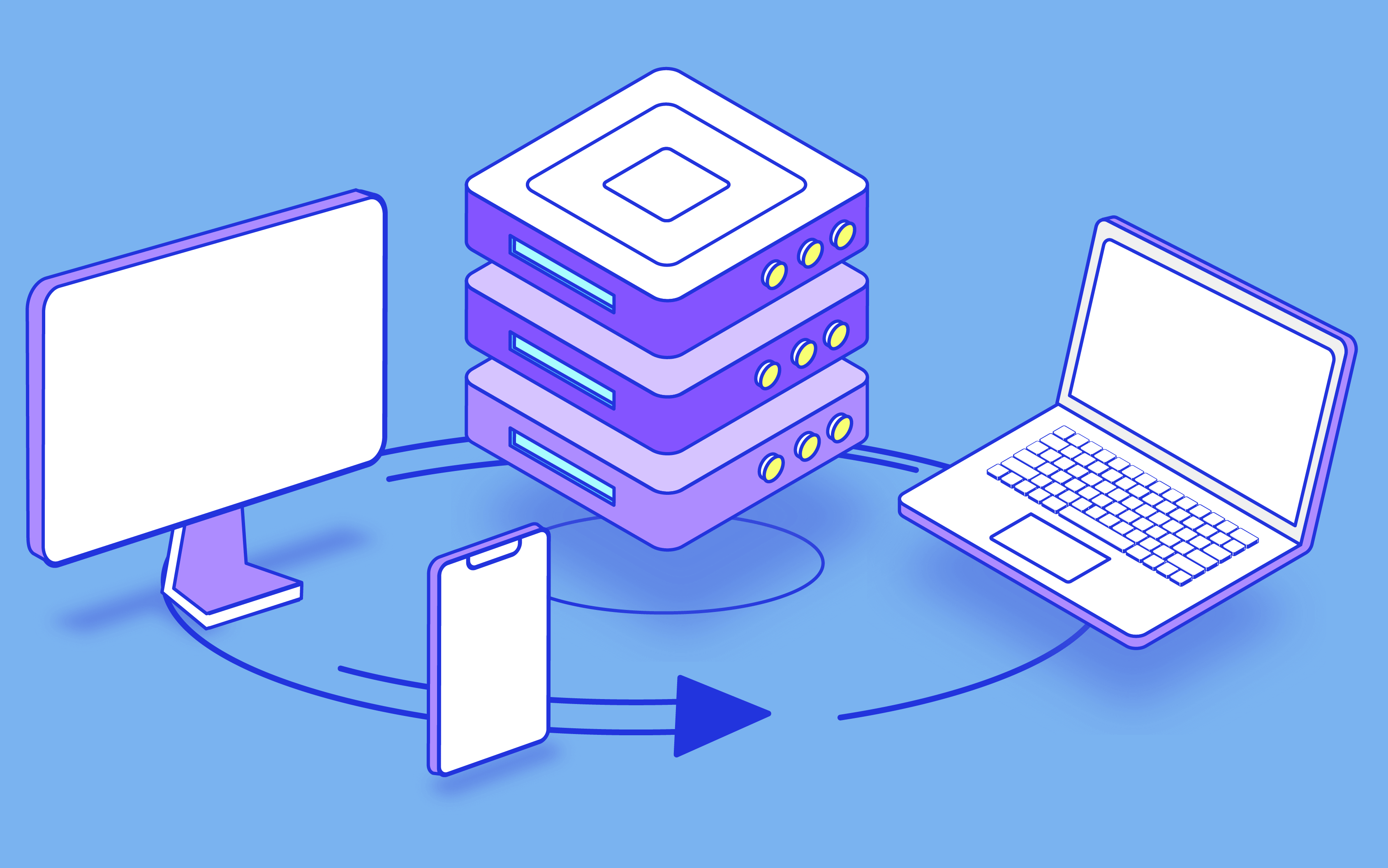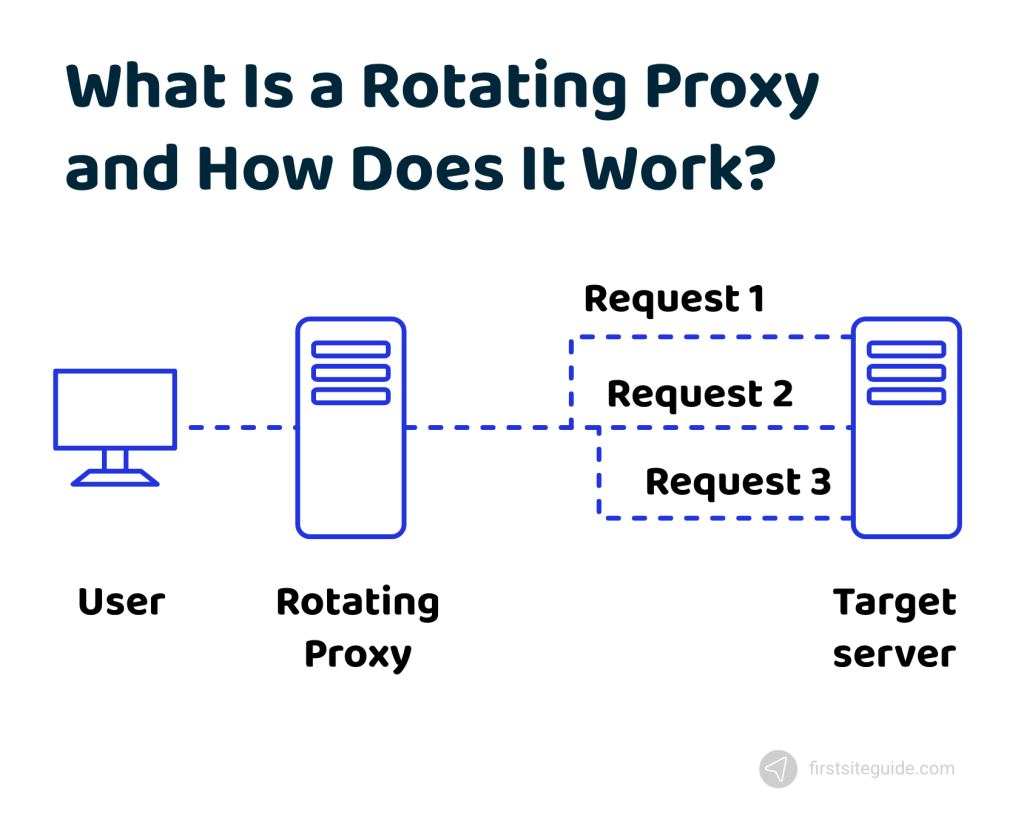What Is a Rotating Proxy and How Does It Work?

The latest cybersecurity statistics reveal that businesses suffered from 15.1% more cyberattacks and data breaches in 2021 than in 2020. Moreover, hackers attempted weekly attacks on corporate networks 50% more often over the past year.
You’ve probably heard similar news over the years, with experts warning about cybercriminals’ sophisticated tools and urging us to take preventive cybersecurity measures. Maybe it’s time that we listened to them and heeded their wake-up calls.
Proxy servers are one of the best tools available for adding an extra security layer to your network and enjoying higher online anonymity and data security. Rotating proxy types are ideal for businesses.
Let’s examine what rotating proxies are, how they work, and how they can benefit your business.
Defining a rotating proxy
A rotating proxy is a proxy server that changes your internet-enabled device’s IP address for each HTTP request that your web browser makes. It generates new IPs from its vast pool of addresses, hiding your actual IP address to keep you anonymous online.
These IP addresses often come from residential devices – the IPs that ISPs (Internet Service Providers) assign to homeowners. They can also be computer-generated IPs from data centers.
Residential and datacenter proxies are the most prevalent types in the rotating proxy server category – most providers offer pools of both to meet different customer needs.
For instance, rotating residential proxies are ideal for avoiding server detection because they use actual IP addresses. However, this level of anonymity and security can be expensive. Their datacenter counterparts are more affordable and offer ultra-fast internet speeds, but servers can detect them.
How do rotating proxies work?
Rotating proxies generate a new IP address for every connection and HTTP request, masking your IP address and pulling an impenetrable veil over your network. Here’s how it works.

Whenever you click a link or type a URL into the address bar and hit “Enter,” your web browser sends an HTTP request to the target website’s hosting server, initiating a TCP (Transmission Control Protocol) connection.
Once the server processes the request and authenticates your location, it sends an HTTP response, providing access to the requested page and allowing you to interact with the site.
What if the website restricts access to users in your country? The server sends an error message, preventing you from viewing or interacting with the content.
A rotating proxy solves this problem. Like other proxy types, it sends HTTP requests from its pool of IP addresses, routing your traffic through its server network.
The only difference is that it rotates those IPs for every request and TCP connection, making target servers “think” they’re relaying information to multiple users.
Primary functions of rotating proxies
Rotating proxy servers have many features, all connected to these essential functionalities:
IP masking
Rotating proxies take IP masking to the next level. They conceal your IP address by assigning you a new one every time that you establish an internet connection or request access to website content.
This automatic IP rotation for every connection makes them perfect for sending multiple simultaneous HTTP requests.
Establishing high-speed connections
Most rotating proxy servers establish fast internet connections, some reaching 1 Gbps. Many providers also offer unlimited bandwidth, making these tools ideal for accelerating data transfers and lowering operational costs.
Rotating proxies that use a SOCKS5 internet protocol for TCP connections ensure even faster speeds and better, error-free performance.
End-to-end encryption
The best proxy servers offer end-to-end encryption and convert HTTP into HTTPS connections. Along with encrypting your traffic, rotating proxies prevent cybercriminals from targeting you by constantly changing your IP address.
Benefits of rotating proxies
After learning how rotating proxies work and exploring their core functionalities, some benefits have probably already occurred to you. Let’s dive deeper into the advantages of these tools.
High level of anonymity
Every proxy server masks your IP address but may not provide complete anonymity. That’s not the case with rotating proxies because of the random IPs that they select for every connection. They pull multiple IPs from residential locations or data centers instead of choosing one from their server network.
This makes your online activity nearly impossible to track, keeping your sensitive data away from prying eyes. You can conduct business operations without worrying about unauthorized users intercepting your data transmissions.
Reliable web scraping
Businesses increasingly use rotating proxies for web scraping because they can make thousands of simultaneous HTTP requests to extract the necessary data. This would be impossible with other proxy servers because websites impose request limits per IP address.
Rotating your IP for every connection is perfect for bypassing geo-restrictions. It can help you to conduct market research, competitive analysis, software testing, and other operations.
IP block prevention
Along with limiting requests from a single IP address, websites employ anti-scraping measures to block web scrapers, such as CAPTCHA tests and honeypot traps.
A rotating proxy can bypass those mechanisms, preventing target websites from detecting your actual location and blocking the connection.
You can launch a script to extract multiple data points from a website without getting an IP block. The target website’s server will detect a new IP address for each HTTP request, thus approving them and sending a swift response.
Conclusion
Rotating proxy servers are brilliant tools to include in your corporate digital arsenal, especially if you rely on web scraping to research the competition, optimize prices, or enter a new market.
However, that doesn’t mean that individuals can’t use them. Users can enjoy high online anonymity and data security and unlock geo-restricted content to catch up on their favorite TV shows, movies, or sports events.
However, users can do that with any other proxy server – they don’t need to rotate their IP address for every connection.
Rotating proxy tools are most beneficial to businesses because their research operations often require harvesting data from multiple websites. They can quickly gather crucial information for data-based decisions and growth strategies.
